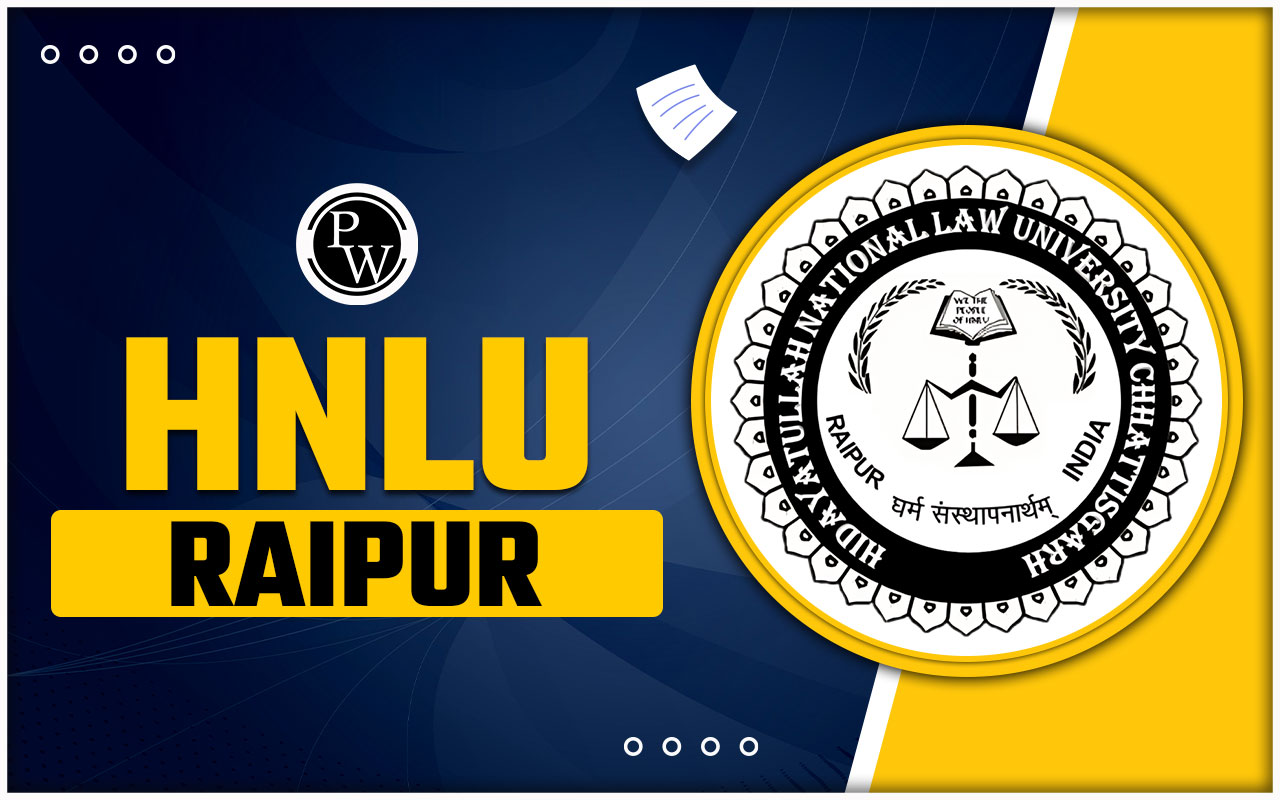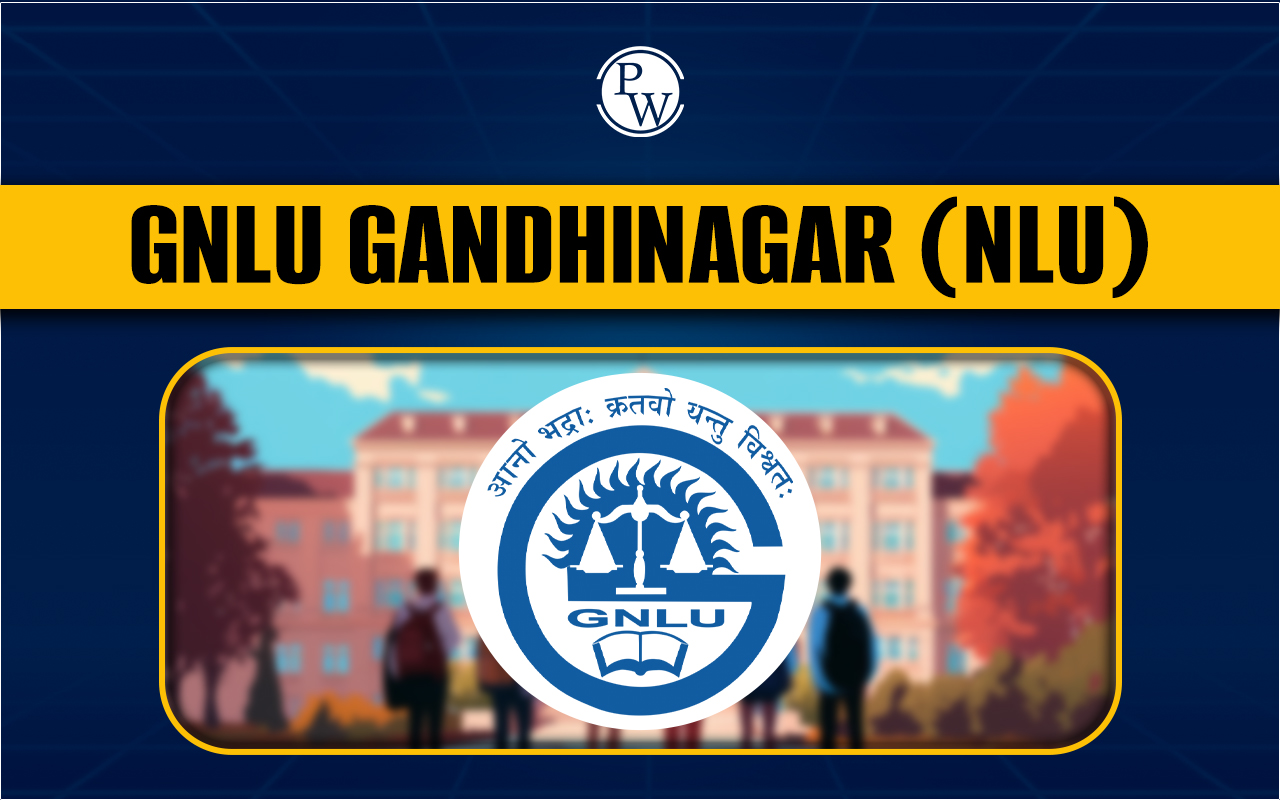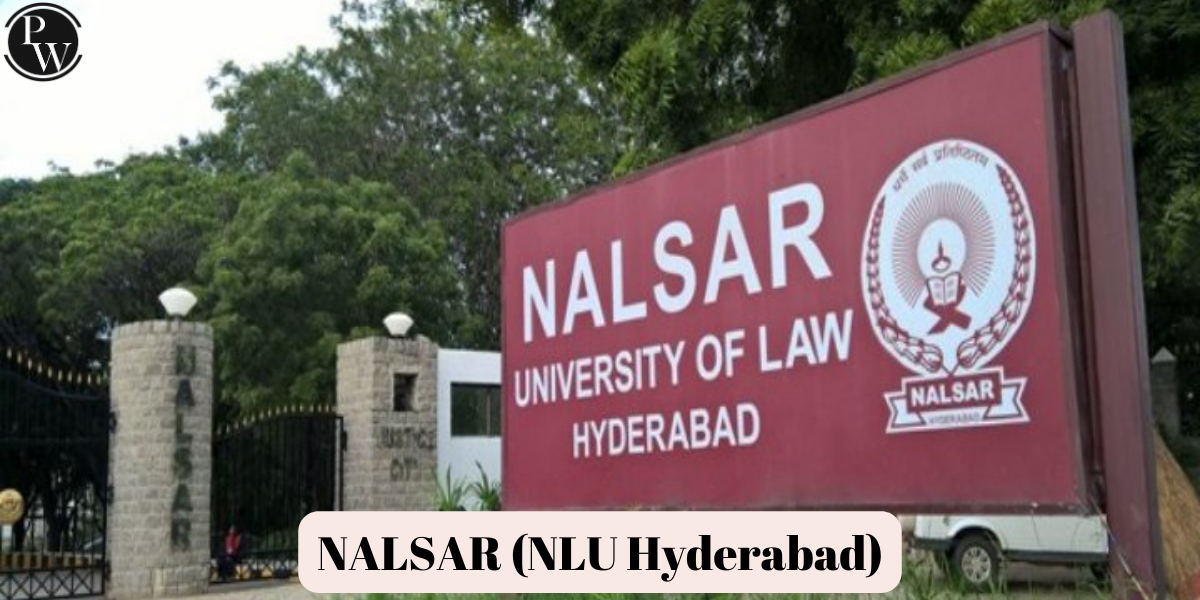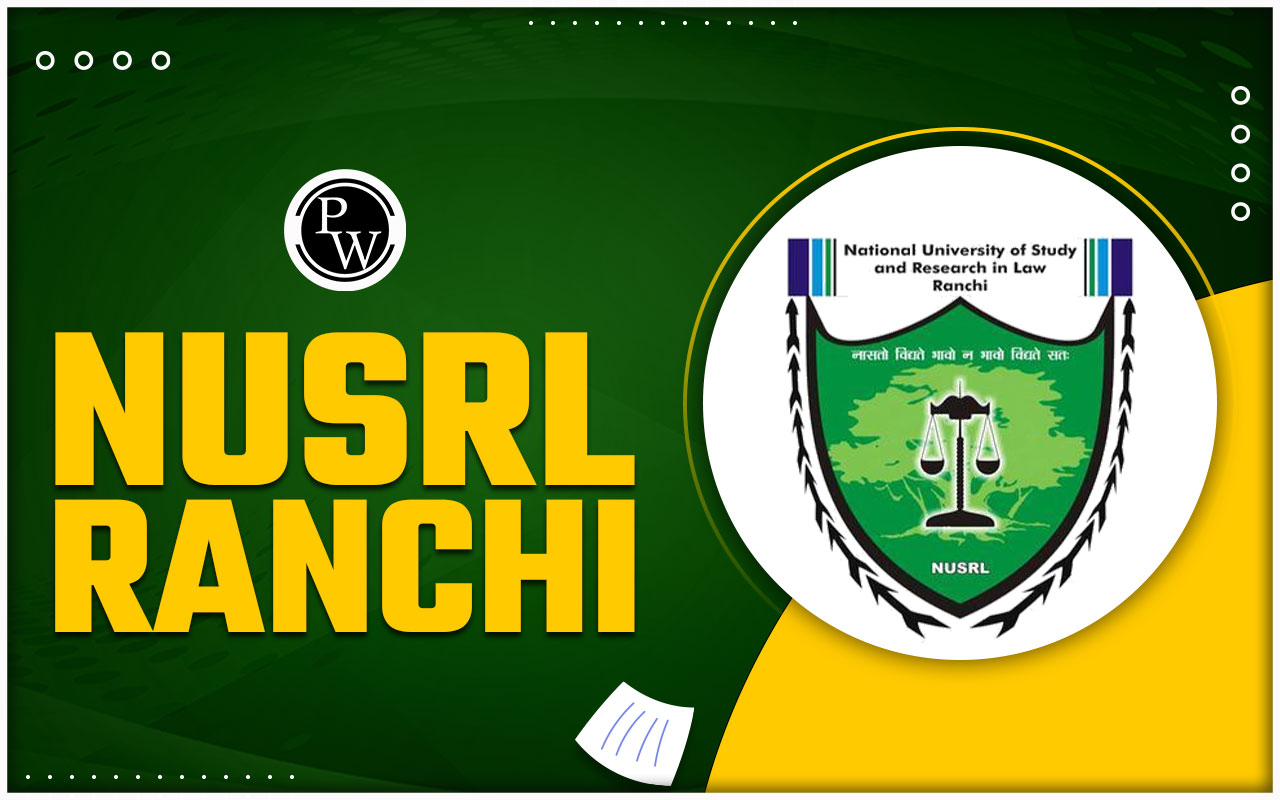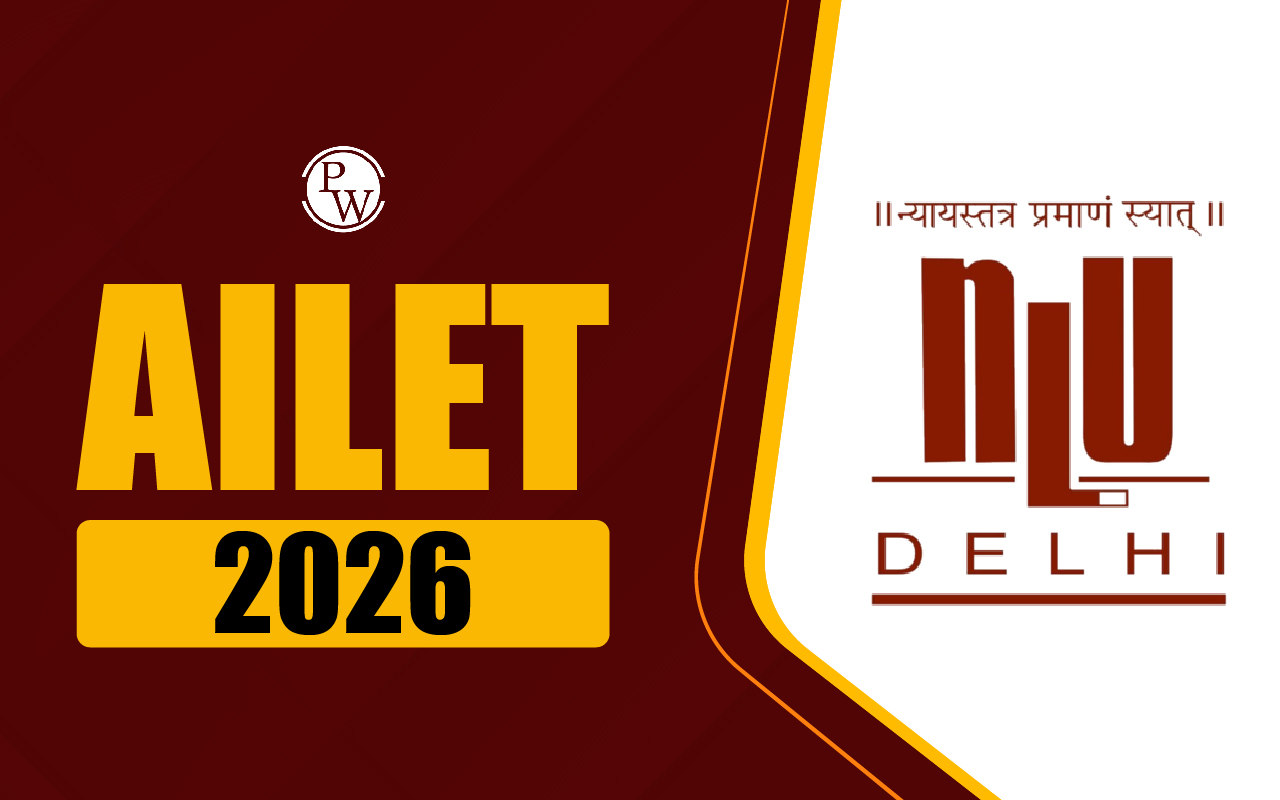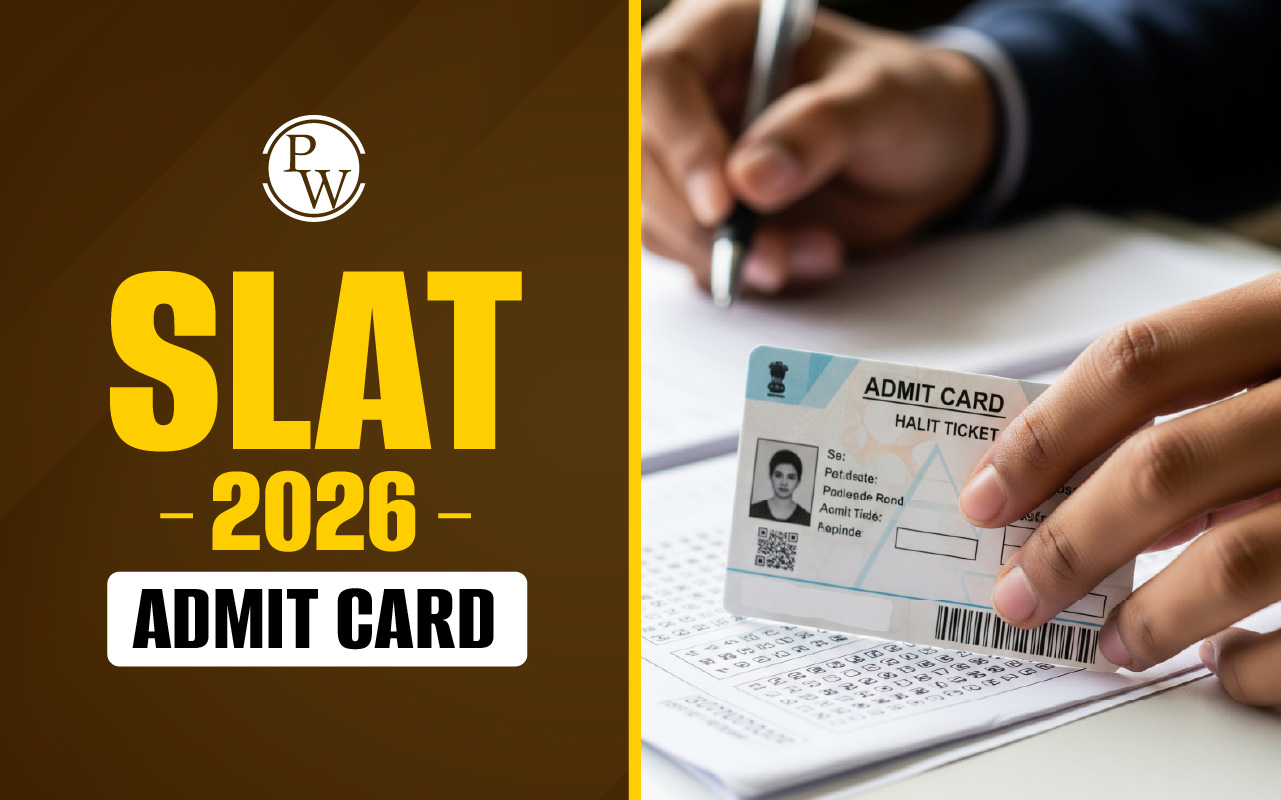
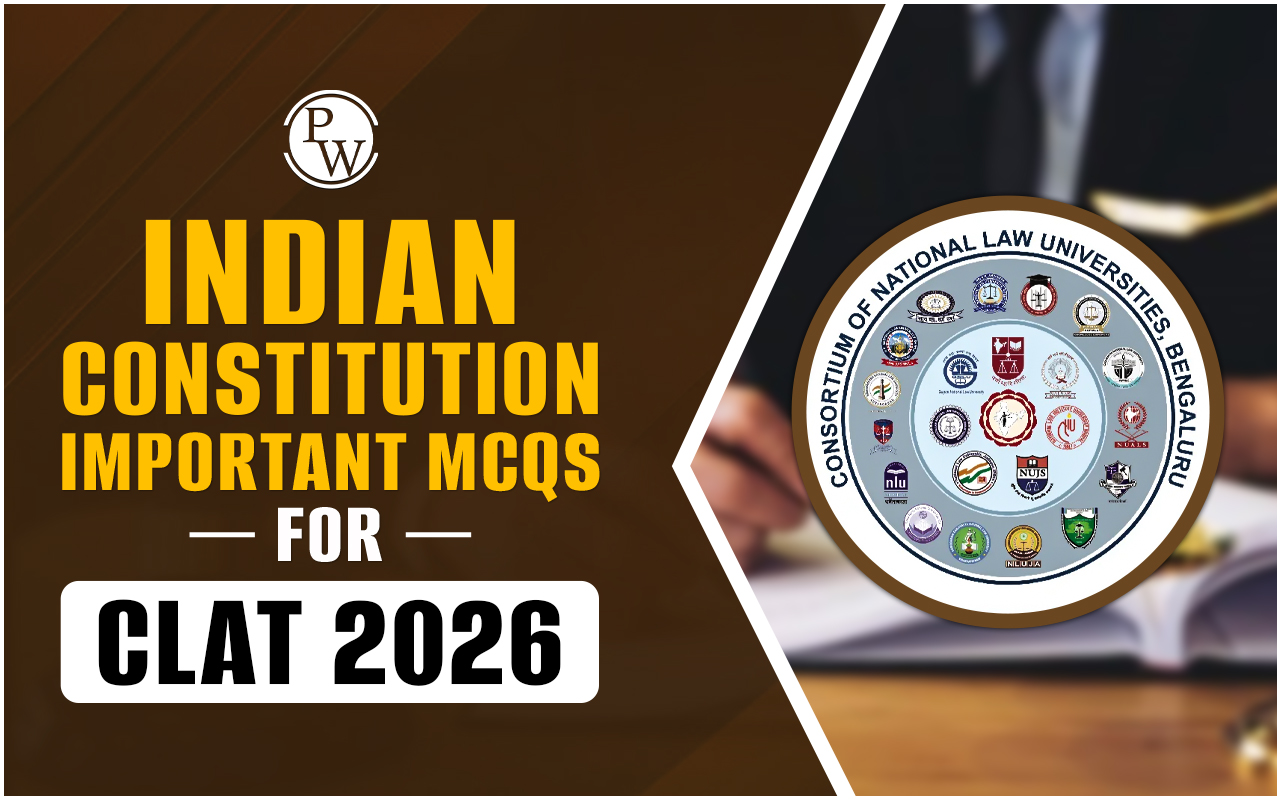
Indian Constitution Important MCQs for CLAT 2026: The Indian Constitution is a crucial topic for CLAT 2026 preparation as it forms the foundation of several questions in the General Knowledge and Legal Aptitude sections. A strong understanding of constitutional principles helps candidates answer questions related to governance, rights, and legal systems.
To prepare for this section, candidates should focus on key constitutional provisions, amendments, landmark cases, and the roles of various institutions. Staying updated with relevant legal developments will further enhance their performance in this area.Checkout Law Books from PW Store
Importance of Indian Constitution MCQs for CLAT 2026
Indian Constitution MCQs are crucial for CLAT preparation, testing candidates' understanding of fundamental legal principles, constitutional provisions, and landmark judgments. These multiple-choice questions help aspirants assess their knowledge of constitutional law and improve their legal reasoning skills. Here are the key points highlighting the importance of Indian Constitution MCQs for CLAT 2026 preparation.- The Indian Constitution is a fundamental topic that forms the basis of several questions in the Legal Aptitude and General Knowledge sections of the CLAT exam.
- Constitutional issues often form the basis of current legal developments and debates, making them highly relevant for CLAT’s General Knowledge section.
- Familiarity with constitutional concepts like fundamental rights, DPSP, and the separation of powers aids in developing legal reasoning skills, which are tested in CLAT.
- The Constitution is frequently tested in various competitive exams, especially CLAT, making it an area worth mastering for high scores.
- Understanding constitutional law enhances the ability to analyze complex legal scenarios and situations, a key skill for CLAT aspirants.
- Preparing for this topic gives candidates a deeper understanding of the Indian legal system, which is essential for a law career.
- A thorough understanding of the Indian Constitution not only helps in CLAT but also provides a strong foundation for future legal studies and practice.
Indian Constitution MCQs for CLAT 2026
Some important MCQs based on the Indian Constitution for CLAT 2026. 1. Which article of the Indian Constitution deals with the protection of the President of India?- a) Article 52
- b) Article 54
- c) Article 59
- d) Article 61
- Answer: c) Article 59
- a) Right to Work
- b) Right to Property
- c) Right to Education
- d) Abolition of Untouchability
- Answer: d) Abolition of Untouchability
- a) Jawaharlal Nehru
- b) B.R. Ambedkar
- c) Sardar Vallabhbhai Patel
- d) Rajendra Prasad
- Answer: b) B.R. Ambedkar
- a) 42nd Amendment
- b) 44th Amendment
- c) 61st Amendment
- d) 52nd Amendment
- Answer: a) 42nd Amendment
- a) Article 123
- b) Article 73
- c) Article 368
- d) Article 324
- Answer: a) Article 123
- a) Article 245
- b) Article 255
- c) Article 323
- d) Article 100
- Answer: a) Article 245
- a) Article 25
- b) Article 29
- c) Article 30
- d) Article 32
- Answer: c) Article 30
- a) Article 15
- b) Article 19
- c) Article 21
- d) Article 25
- Answer: b) Article 19
- a) Prime Minister
- b) Chief Justice of India
- c) President
- d) Speaker of Lok Sabha
- Answer: c) President
- a) 6 months
- b) 1 year
- c) 3 months
- d) 2 months
- Answer: a) 6 months
- a) Article 12
- b) Article 32
- c) Article 14
- d) Article 16
- Answer: b) Article 32
- a) Impeachment of the President
- b) Ratification of treaties
- c) Introduction of money bills
- d) Creation of new states
- Answer: b) Ratification of treaties
- a) Part VI
- b) Part V
- c) Part III
- d) Part IV
- Answer: b) Part V
- a) President
- b) Supreme Court
- c) Parliament
- d) Chief Justice of India
- Answer: b) Supreme Court
- a) Article 246
- b) Article 248
- c) Article 249
- d) Article 250
- Answer: a) Article 246
- a) Article 16
- b) Article 17
- c) Article 18
- d) Article 19
- Answer: b) Article 17
- a) Lok Sabha
- b) Rajya Sabha
- c) Both Houses of Parliament
- d) None of the above
- Answer: c) Both Houses of Parliament
- a) Kerala
- b) Jammu & Kashmir
- c) Bihar
- d) Tamil Nadu
- Answer: b) Jammu & Kashmir
- a) Parliamentary system of government
- b) Unitary form of government
- c) Strong central government
- d) None of the above
- Answer: a) Parliamentary system of government
- a) 6 years
- b) 5 years
- c) 4 years
- d) 3 years
- Answer: a) 6 years
Indian Constitution Important MCQs for CLAT 2026 FAQs
How many questions on the Indian Constitution are asked in CLAT?
Generally 10-15 multiple-choice questions related to constitutional law are asked in the exam. These questions cover topics like fundamental rights, landmark judgments, constitutional articles, and key legal principles.
How important is the Preamble of the Indian Constitution for CLAT?
The Preamble is important as it reflects the philosophy and guiding principles of the Constitution. It is often tested in MCQs, particularly regarding its objectives and the fundamental values it embodies.
What are the most important topics in the Indian Constitution for CLAT?
Key topics to focus on include Fundamental Rights, Directive Principles of State Policy, Union and State Executives, Judiciary, Amendment Procedures, Preamble, and Federal Structure. These areas are frequently tested in CLAT.
How should I prepare for Indian Constitution MCQs for CLAT 2026?
To prepare for Indian Constitution MCQs, candidates should focus on understanding key articles, provisions, amendments, and landmark judicial decisions. Practicing with past years' CLAT papers and taking mock tests will help improve speed and accuracy in answering constitutional law-related questions.
Is it necessary to memorize the articles of the Indian Constitution for CLAT?
While memorizing all the articles may not be necessary, it’s crucial to focus on understanding the fundamental articles (e.g., Article 14, Article 19, Article 32), important amendments, and significant landmark judgments.
Talk to a counsellorHave doubts? Our support team will be happy to assist you!

Free Learning Resources
PW Books
Notes (Class 10-12)
PW Study Materials
Notes (Class 6-9)
Ncert Solutions
Govt Exams
Class 6th to 12th Online Courses
Govt Job Exams Courses
UPSC Coaching
Defence Exam Coaching
Gate Exam Coaching
Other Exams
Know about Physics Wallah
Physics Wallah is an Indian edtech platform that provides accessible & comprehensive learning experiences to students from Class 6th to postgraduate level. We also provide extensive NCERT solutions, sample paper, NEET, JEE Mains, BITSAT previous year papers & more such resources to students. Physics Wallah also caters to over 3.5 million registered students and over 78 lakh+ Youtube subscribers with 4.8 rating on its app.
We Stand Out because
We provide students with intensive courses with India’s qualified & experienced faculties & mentors. PW strives to make the learning experience comprehensive and accessible for students of all sections of society. We believe in empowering every single student who couldn't dream of a good career in engineering and medical field earlier.
Our Key Focus Areas
Physics Wallah's main focus is to make the learning experience as economical as possible for all students. With our affordable courses like Lakshya, Udaan and Arjuna and many others, we have been able to provide a platform for lakhs of aspirants. From providing Chemistry, Maths, Physics formula to giving e-books of eminent authors like RD Sharma, RS Aggarwal and Lakhmir Singh, PW focuses on every single student's need for preparation.
What Makes Us Different
Physics Wallah strives to develop a comprehensive pedagogical structure for students, where they get a state-of-the-art learning experience with study material and resources. Apart from catering students preparing for JEE Mains and NEET, PW also provides study material for each state board like Uttar Pradesh, Bihar, and others
Copyright © 2025 Physicswallah Limited All rights reserved.



